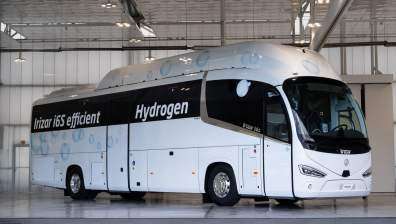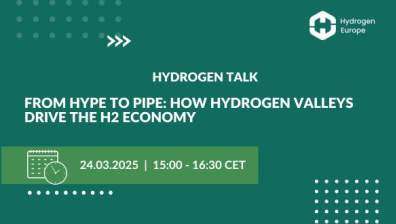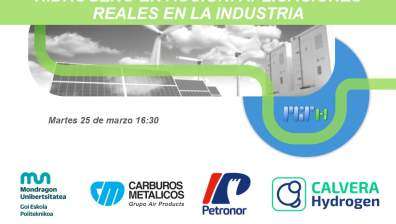
The area around the Port of Bilbao, a "nerve centre" for the development of the hydrogen economy.
"The challenge of the energy transition is not new. The projects taken forward together by Petronor and the Port of Bilbao in relation to the oil refinery, which started back in 1968, and the transition to gas and the commitment to energy efficiency 20 years later, are comparable to the present-day energy transformation we are facing with renewables and synthetic fuels and which will, in turn, be followed by the development of hydrogen in the next decade", said José Ignacio Zudaire, Petronor Director and President of the Basque Hydrogen Corridor Association (BH2C).
The event, organised by the Port Authority of Bilbao with the collaboration of Orkestra, the Basque Institute of Competitiveness, focused on "the role of ports in the energy transition".
After confirming that the "European Strategy considers hydrogen an essential element to achieve carbon neutrality in 2050", and that both "hydrogen and synthetic fuels are an alternative to achieve a sustainable energy model", Zudaire emphasised that the area around the Port of Bilbao combines the four factors that, according to the report drawn up by the International Energy Agency (G20 Japan, 2019), enable the development of a hydrogen ecosystem.
Factors such as "the conversion of ports with chemical or refinery industries into nerve centres for the development of a hydrogen economy", and "taking advantage of the existing natural gas pipeline infrastructure and the possibility of injecting low-carbon hydrogen to decarbonise consumption".
Likewise, factors which enable "the use of long-distance freight transport routes to deploy infrastructure that makes it possible to migrate towards zero-emission mobility". And, finally, the possibility of "developing international shipping routes to transport hydrogen, following the LNG model that has been so successful in the extension of natural gas".
In Zudaire's words, the coincidence of the four factors in the Port of Bilbao, "an environment in which the transformation of energy-intensive industry is essential", as well as "opening up new opportunities for the technology and capital goods industry", is what has made the existence of the Basque Hydrogen Corridor possible, an initiative which already has over 60 associate members.




